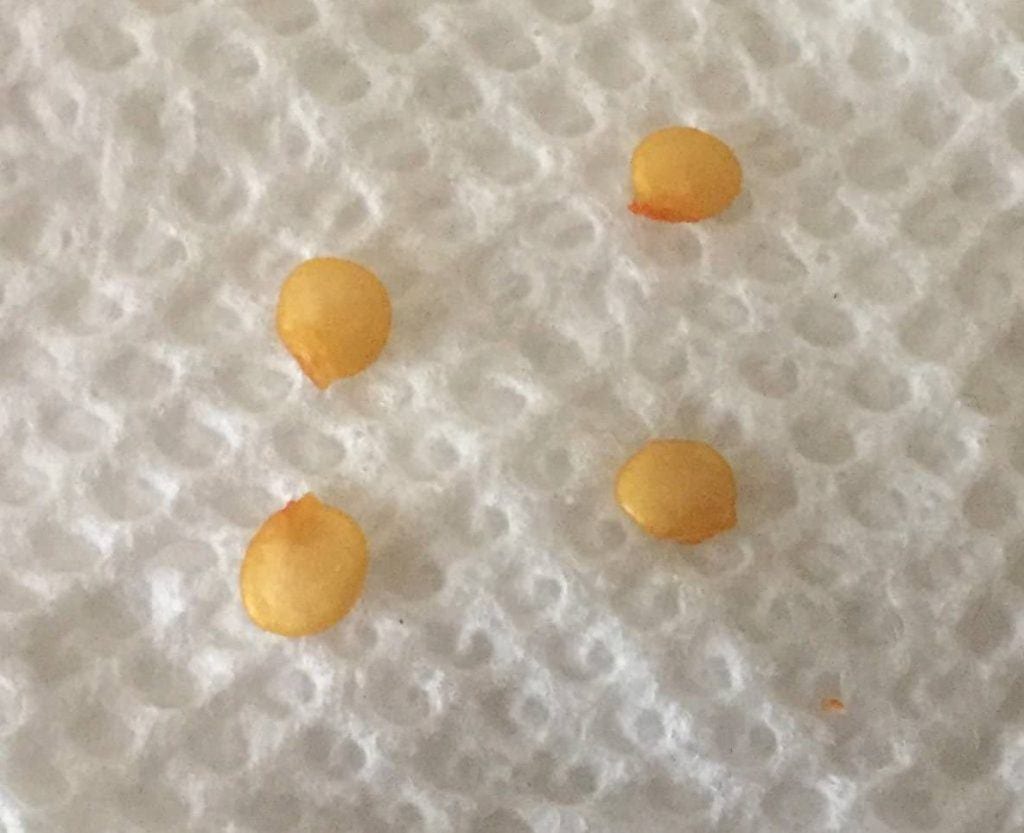You can start your peppers by simply sowing a few seeds and then waiting to see what pops up. It’s much safer to test pepper seed viability first.
(By the way, this test works on all types of seeds besides peppers.)
So why test?
A viability test can give you an absolute guarantee that certain seeds, under favorable grow conditions, can germinate. Essentially, you’ll know fairly quickly if your seeds can grow into plants.

Home gardeners typically depend on frost dates, grow seasons and other weather-related factors (assuming you grow outdoors). Seeds that won’t sprout can make you lose precious time that can throw your whole season off.
Business owners may provide pepper plants or chile-related products for customers. Unusable seeds is money lost. And if your business grows novelty peppers, it may not be possible to purchase the same seedling varieties to replace your lost plants.
This is why you want to test pepper seed viability for germination. It can save a lot of trouble!
Soak Your Seeds
If you remember this post, I describe the soaking procedure. This is how you tell whether the seeds can germinate in the first place.

- Drop a few seeds in a cup filled with water. (You can also use a weak chamomile tea solution to help kill off any bacteria during the soak.)
- Wait 24 to 48 hours.
- Discard the seeds that are still floating at the top.
- Plant the seeds that dropped to the bottom. These are you good seeds.
Note: Be sure to plant your soaked seeds right away, or use them for the seed germination test below.
Grow Hot Peppers is reader-supported. When you buy through links on our site, we may earn a monetary commission. Learn more.
Test Pepper Seeds for Viability
This process will determine the viability of your seeds, which means you’ll know if they are capable of germination. You can plant these pepper seedlings right after the test.
Materials You’ll Need:
- 10 seeds of each pepper variety you are testing (or use the seeds from the soaking procedure)
- Sealable plastic baggies for each pepper variety
- Paper towels for each variety
- Permanent marker to label the baggies
- Spray bottle filled with water
1. Wet the paper towel with water and then fold it in quarters.



2. Place seeds of a pepper variety on the towel.

3. Fold up the paper towel and press slightly to make sure the seeds connect with the towel and stay in place.

4. Drop the towel in a sealable baggie and then label it with the name of the pepper variety.

5. Put the baggie on a warm area, such as a heat mat, to help with the germination.
6. Check the seeds in the towel daily for germination. Spray the towel to keep it moist.
Testing Pepper Seed Viability Video
Determine Your Seed Viability Results
After the seeds have sprouted, you’ll want to determine their viability rate. This will tell you whether the rest of the seed packet has a good chance of germination.
Simply count the number of germinated seedlings and multiply by 10 to get the rate. For instance, 8 seeds would be an 80% viability rate.
Note: Less than a 50% viability rate is going to be tough to grow. I suggest getting another pack of seeds, or else plant a lot more seeds in the hopes that some will germinate.
If you’d like more help starting pepper seeds, be sure to check out The Pepper Seed Starting Guide. This ebook steps you through all of the processes of starting seeds indoors and growing them into healthy, outdoor-ready plants.
Plant Your Germinated Seedlings
After your seeds sprout, you’ll want to get them in a potting medium to start growing them out.
Cut the piece of paper towel that contains the seedling and then just plant directly into the medium. Don’t try to pull the seedling off of the towel because you can damage the roots.
Happy growing!
More Posts On Pepper Seeds:

